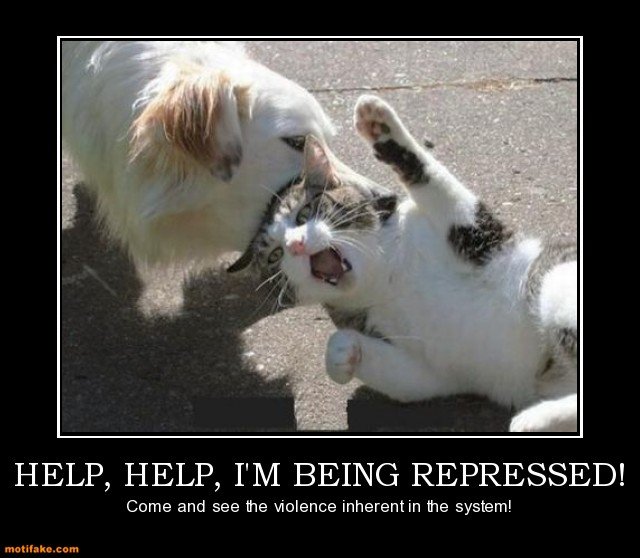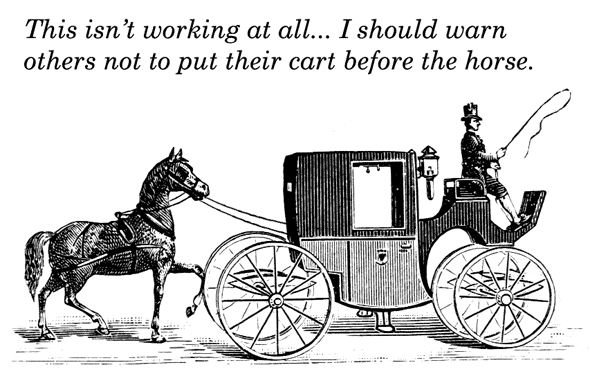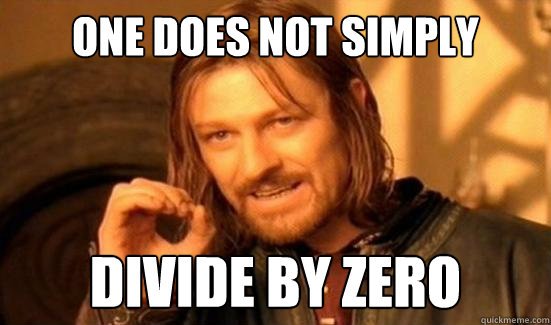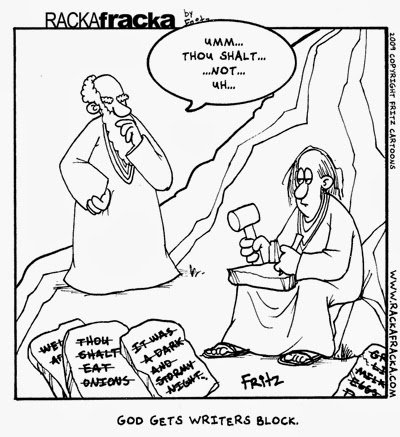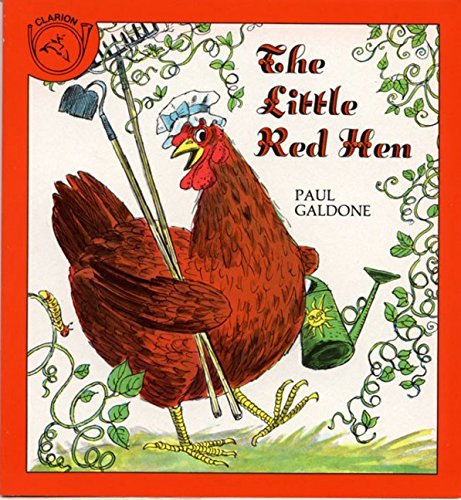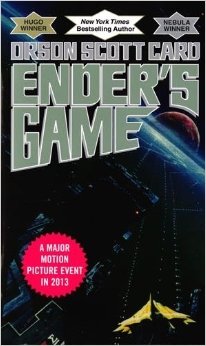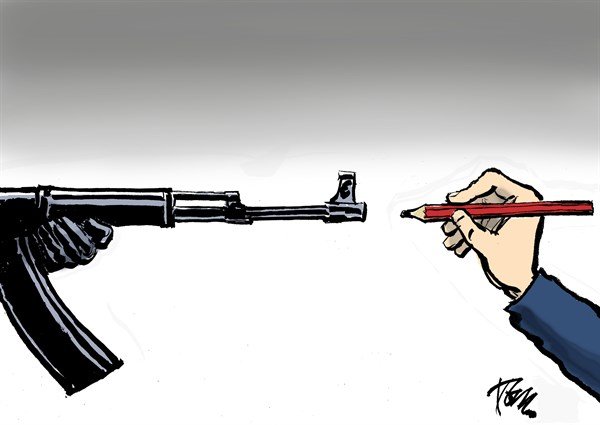The Writer is King
This post was co-published at talanhorne.com
Decision by democratic majority vote is a fine form of government, but it's a stinking way to create.LILLIAN HELLMAN
This post is going to be a long one.
Just thought I'd let you know in advance. There is much to be discussed today. If I wax verbose, I can only pray you will forgive me. Nevertheless, I must continue, despite what the market may think of such an action. Like the inventor of mayonnaise said above: this subject does not lend itself to taking polls. It is a sport of kings---many of them so famous that they have become household names. By the end of this post, you will understand why they took up this mantle, for while no two writers are alike, all of them share this common burden:
The writer is king.
I say that with severe absolutism and no reservations, and you know what that means.
Mr. Devil's Advocate: "I do, indeed."
That's right. Once again, I will be joined by Mr. Devil's Advocate, who will force me to justify all my positions.
Mr. DA: "Just doing my job. I'm ready when you are, partner."
Then let's begin.
Now is the Winter of our Discontent
This matter was recently brought to my attention by a reader of this blog, who demanded that I rescind or edit certain blog posts to suit his liking. When I refused, he informed me that my "problem" was that I hold the writer to be the king of his domain.
I quickly informed him that this position was not only correct, but fundamental to the practice of writing. He took the opposite position, which we are now calling the "Reader is King" hypothesis.
Mr. DA: "Well, that doesn't sound like such a big deal. People have differing opinions. What's so bad about that?"
He further said that the writer was merely the employee of the reader.
Mr. DA: "Yikes. But I still have to ask, what's the big deal? Why is it so important that writers be kings? Do their egos need that much of a windfall?"
Not at all. The "Writer is King" law is implemented as a practical matter. To do otherwise is like trying to build a pyramid on its tip.
Though other, similar metaphors suffice.
Mr. DA: "Do you have any evidences for this position?"I have tons. And we're going to go through as much of them as I can put in a single blog post.
We'll start with the weakest evidences, then get stronger until we reach the ones that are absolutely adamant. By the end, everything will be clear. But keep in mind that we're doing this by degrees.
Without further ado, lets examine the weakest argument in our favor.
Appealing to Authority
It's a logical fallacy, yes, but then, it is also the foundation of all writing. Every writer today is standing on the shoulders of giants, and each of us cannot put our work out there without revealing our influences.
Needless to say, but writers all down the ages have spoken about the Writer is King principle. And the consensus is overwhelming. Let's take a look.
The writer is only free when he can tell the reader to go jump in the lake. You want, of course, to get what you have to show across to him, but whether he likes it or not is no concern of the writer.FLANNERY O'CONNOR
There's no room for the reader in your mind: you don't think of anything but the language you are in.E.L. DOCTOROW
I just write what I wanted to write. I write what amuses me. It's totally for myself.J.K. ROWLING
Don't try to visualize the great mass audience. There is no such audience---every reader is a different person.WILLIAM ZINSSER
The writer writes in order to teach himself, to understand himself, to satisfy himself; the publishing of his ideas, though it brings gratification, is a curious anticlimax.ALFRED KAZIN
A very wise author once said that a writer writes for himself, and then publishes for money. I write for myself and publish just for the reader.GUILLERMO CABRERA INFANTE
Any writer overwhelmingly honest about pleasing himself is almost sure to please others.MARIANNE MOORE
Literary success of any enduring kind is made by refusing to do what publishers want, by refusing to write what the public wants, by refusing to accept any popular standard, by refusing to write anything to order.LAFCADIO HEARN
Great editors do not discover nor produce great authors; great authors create and produce great publishers.JOHN FARRAR
Thank your readers and the critics who praise you, and then ignore them. Write for the most intelligent, wittiest, wisest audience in the universe: Write to please yourself.HARLAN ELLISON
My biggest dream was to ruin the lives of my readers and crush their souls.GEORGE R.R. MARTIN
Also:
There were times I was afraid I would never sell another book, but I never doubted I'd write another book.
We do not write in order to be understood; we write to understand.C.S. LEWIS
Now, this is a mountain of information. And it is testament to the long history of the "Writer is king" canon. Needless to say but the idea that the writer has sovereignty over his own work is the foundation of all writing. To challenge that is to make the claim that you are smarter than all who have come before you---that everyone is history has been wrong while you alone are right.
Mr. DA: "But aren't there any quotes that cut in the opposite direction? There must be someone in history who thought that the reader was king."
Granted, there are plenty of quotes stating that the writer has a certain amount of accountability toward the reader, including advice on how to keep the reader interested, and the necessity of doing so. But nowhere is it stated, by anyone you've heard of, that the reader holds full sway and sovereignty over the work. And you wouldn't want to be the first author to make such a quote either, as it is antithetical to the nature of writing.
Of course a writer wishes to please his readers, in the same way that a king wishes to make his kingdom attractive to tourists. But the tourists do not make the laws or pay the bills. And even if they all pack up and leave, the king is still fully in charge of his kingdom. No one can take that from him.
The Reader is Not an Employer
Moving on to stronger arguments, let's consider the fundamental platform of the "Reader is King" conjecture: the claim has been made that the writer is merely the employee of the reader.
Mr. DA: "That makes sense. The writer is the one doing the work, and the reader is the one who pays for it."
You think so? Then answer me this: does the employer appear after the finished product is released to market?
Mr. DA: "Well, no."
And is the employer's only participation limited to making an up or down purchase choice?
Mr. DA: "Well, no."
And is the employer excluded from important activities such as price setting, cover design, and marketing strategies?
Mr. DA: "Of course not."
Then how in the world can you confuse the reader with the employer? Let's consider how this works in the real world.
In the United States, book authors fall into the tax category of self-run businesses. As far as the IRS is concerned, the writer is his own employer, the publisher is his customer, and readers are the publisher's customers. Other developed nations treat the writer in similar fashion, because to make the writer an employee of the reader would mean that the reader would have to be taxed as an employer.
But even if we discount the government's position on writers (since, after all, when was the last time we could trust the government?), we would still have to face the reality that the private sector---the writing business itself---treats writers as entrepreneurs. They are universally seen as their own employers.
Mr. DA: "But that can't be right. After all, the writer is still the servant of the publisher. The publishing house's editors get to tell him what to do."
Actually, that's not the case. Even at major publishing houses, the writer has the final say on the content of his book. The editors make suggestions. They can even terminate the author's contract if he is too difficult to work with or does not take at least some of their advice. But they cannot force their changes into the book or publish the book without the author's permission. His name is going to be on the cover, so he has a legally mandated responsibility to approve the final edit.
Furthermore, if he does lose his contract with one publisher, he is then free to sell his manuscript to other publishers. A lot of famous authors and books have gone through this as part of their publication process.
When someone says that the writer is the employer of the reader, what they're really saying is "I don't understand how being a writer or being an employer actually works."
The Writer is King because there Is No Reader
"Whoa."
Another huge hole in the "Reader is King" supposition comes in the form of a simple question: which reader?Because everyone can't be king (the inventor of mayonnaise got that one right). Likewise, you're not selling your book to any one reader. And there is no way you can satisfy them all.
What attracts one reader will inevitably repulse another. Which of them, in such a scenario, is king? It's like a math problem with an undefined answer.
In truth, there is no monolithic "reader" lurking out there, demanding to be appeased. Rather, it's an ocean of potential readers, at least some of whom will enjoy your work, provided that it pleases you. The duty of the writer is to produce the best work that he can, then let people like it or hate it as they will. He cannot force, much less anticipate, the reaction of any one reader.
Even the greatest writer in history---God Himself---has failed to publish a book that pleases everyone. That. Is. Staggering.
Mr. DA: "Fair enough, but if you're going to bring God into this, I might have to recuse myself, due to a conflict of interest."
Don't worry, there are a lot of other examples. Consider all the people out there who hate the Harry Potter books, or the ones who despise The Lord of the Rings or The Stormlight Archive or The DaVinci Code or any kind of book that has achieved popularity. Some of them are just contrarians, but most of them just have different tastes than yourself. And there is no accounting for taste.
Mr. DA: "But shouldn't a writer at least know who his target audience is, and write to them? There may not be any one kind of reader, but they certainly travel in packs."
Ah, but there's a problem with that: how do you know what your target audience wants? Or, even better, how could the target audience possibly know what they want?
To quote another inventor:
If I asked people what they wanted they would have said faster horses.HENRY FORD
Because the readers have no idea what they want.
When Stephenie Meyer's Twilight first came out, the publisher was taking a huge risk. Conventional wisdom was that vampires were forever out of fashion, having been done to death in the wake of the Anne Rice era. Most people in the industry expected the book to flop right out of the gate.
Lo and behold, it was a smash success. And after its publication, every publisher starting calling back a certain group of authors---people who had for years been trying to get their vampire novels published, but had been told that vampire books were dead. As such, a new wave of vampire fiction flooded the market.
So there's no point in trying to anoint "the one true reader" as king. That person doesn't exist. Trying to please them is a waste of energy. The writer writes to please himself.
"The Reader is King" Comes from a Place of Entitlement
You see it all the time.When a writer is just starting, struggling to make their way in the world, people will not give him the time of day. If he asks for money to help him support his writing habit, he gets none. If he asks for editing help from friends or family, they'll take his manuscript, put it on a shelf, and never look at it again. If he asks people to at least believe in him, he is either laughed at or shouted down.
And, of course, he gets no help from readers. He'll ask for input from people who read a lot, and they'll politely (or sometimes not-so-politely) dismiss him.
That all changes once he becomes successful.
If that writer hits it big, suddenly everyone who neglected him will come out of the woodwork and start making demands.
"Now that you're so rich and famous, will you cosign my mortgage?"
"I know I didn't help you out before when you asked for money, but could you help me out?"
"I always supported you, even when I said your work was crap and you should be a lawyer instead."
But worst of all are what the readers say---the same ones who refused to give you any help or input back when you were unknown.
"I know what your books need. Let me give you all my story ideas, and then you can write them."
"You made a HUGE mistake in chapter 15. I can tell you how to fix that in future books. You know, character x really should be the main character from now on. I fully expect you to implement this list of changes I've written up."
"Now that you have a voice in the world, I need you to broadcast my pet politics to everyone. It's an important cause. Only a monster would refuse to address this issue in his books. You'll do it for me, I'm sure."
"Why didn't you take any of my suggestions. Don't you know that I own you? I bought your book, therefore I am the reason is successful. You answer to me now, mister!"
It's insane. And it's typical. Every day, successful authors get mountains of "fan mail" from people demanding to be given complete creative control over their works. And they believe they have full authority to seize such control because they bought one of the author's books, or they borrowed one from the library, or they pirated one off the internet. So of course the author is now beholden to their whims, right?
No.
Successful authors have learned how to tune out these entitled brats. They keep writing what they want to write. And, of course, the "Reader is King" crowd is dumbfounded by this development. They rant and rage about how they will never buy another of the author's books unless their demands are met. They may even start massive campaigns against the author, hoping to shame or frighten him into submission.
And then, something amazing happens: the author does not lose readership. He continues to sell books, and his readership may actually increase after the event. This is because he is a king, and if he will not be bullied by lesser tyrants, his kingdom will only grow.
Some Famous Examples
There are a lot of high profile cases demonstrating this. Let's consider a few of the big ones.
J.K. Rowling
Not long after publishing the seventh Harry Potter book, Joanne Rowling was giving an interview about her career. While being questioned, she allowed herself to reveal the fact that Albus Dumbledore, perhaps the most beloved of her characters, was gay.Instantly, waves of people (some of them her fans, and some of them not) demanded a retraction from her. A few went even so far as to say she had no right to make such a proclamation. Some of them even said that she had betrayed them.
Orson Scott Card
Mr. Card is an outspoken social conservative, and has not hesitated to voice his objection to the acceptance of same-sex marriage in society. He even has written anti-gay themes into some of his works. To this day, he has not changed his position.Some of his readers, upon learning of his positions, have gone ballistic. They have demanded apologies and retractions from him or even demanded that he censor himself from now on, stating that he may be allowed to have those positions but is never allowed to speak them.
Now, consider these two authors---J.K. Rowling and O.S. Card---two people with very different views of the world and their own bodies of work. You, as a reader, are entitled to form whatever opinion you want about them. You are allowed to believe that they are right or wrong, or even that they are good or evil.
You cannot, however, argue that they are not within their rights to express those opinions through whatever medium is available to them. Nor can you say that they are wrong about their own characters and books and cannot determine what kind of people those characters are.
Power is not given you to make Dumbledore straight or to remove the anti-gay themes from the works of Orson Scott Card.
Of course, you could always fall into that group of people who simply reads the authors that they enjoy, without any regard to their politics, but alas, that approach is too sane for the "Reader is King" crowd.
Larry Correia
Another famous example is Larry Correia. He is one of the people who first alerted me to the issue of readers acting entitled.A fervent second amendment supporter, Larry is constantly badgered by people on his Facebook and his blog, demanding that he change his positions or else they will stop reading him. These entitled readers also assure him that they are not the only ones who feel this way, and that he will soon be left with zero readership due to his "dangerous" opinions.
Larry has never ceded an inch to these people, and yet his readership only grows. I'd like to say he is at the pinnacle of his career, except that he keeps finding higher and higher pinnacles.
Veronica Roth
This last example is perhaps the most important of all.Veronica Roth rode a tidal wave of success with her Young Adult dystopia series, beginning with Divergent. She had many adoring fans, movie deals, interviews---the whole enchilada.
And she concluded her trilogy in a way that most readers did not like.
Words are not sufficient to describe the level of abuse she endured. Entitled fans bloviated about how "evil" she was. They threatened boycotts. They threatened her safety. They openly pined about what a monstrous human being she was.
Mr. DA: "But wait: wouldn't that support the 'Reader is King' hypothesis?"
What? How so?
Mr. DA: "Think about it. She was attacked by the fans for writing a bad book. That means she is the servant of the fans. Her readers, in this case, were the king."
I'm afraid that logic is backwards, and I'll tell you why.
The Writer is King because He Assumes All the Risk
Let's think back to that situation with Veronica Wroth. A bad book was written, and she was unjustly punished for it. You take that to mean that the punishers, in this case, were the kings?Mr. DA: "It seems like the only natural conclusion. Kings are the ones who mete out punishment, after all."
Oh, are they? And are they also the ones who take responsibility for the kingdom's problems.
Mr. DA: "Certainly."
So answer me this: why was no one punishing the readers?
Mr. DA: "Huh?"
Well, if the readers are the true kings, then they bear responsibility when a book is bad, right? So why was no one blaming Veronica Roth's readers for the bad ending to the trilogy? Why were they not punished for interpreting the book so badly? Was anyone telling them that they should light themselves on fire? Were the masses demanding that they never read any more books? Or telling them that they were despicable pigs?
The king is always blamed when things go wrong in his kingdom, whether or not he is at fault, just like how the writer is always blamed when things go wrong with his book, no matter how well intentioned he is.
In books, the reader assumes near-zero risk. They don't have to take a chance to put their name out there. They don't jeopardize their reputation, or their livelihood, or are forced to work two jobs for the book they are reading. But the writer does. He assumes all the risk. He may even destroy his life, his marriage, and his finances to get his book to market. And, after doing all that, some readers, who have sacrificed nothing, will still proclaim that he now works for them.
He doesn't.
The writer is king because he buys the kingdom with all his sweat and blood. No reader, no matter how entitled, can seize it from him.
"The Reader is King" is the Foundation of Censorship
And, if you remember my post about censorship, you will recall that I called it the opposite of publishing.You may also recall that a French opinion paper known as Charlie Hebdo found itself in a situation where a few of its readers objected to its content, and decided to show the paper that they were king.
Nobody was forcing them to read the paper. They could have just walked away. Instead, they decided that it was within their rights to force the paper to change. They did this with guns and explosives.
Now, not every proponent of the "Reader is King" ideology takes it to violent extremes. Where some people use pipe bombs, other people use lawsuits or boycotts. But make no mistake: it all comes from the same place. When the reader thinks himself entitled to change the words on the page, he is fully embracing censorship of ideas and opinions.
For this reason, I have said that the "Reader is King" supposition is not only the inferior viewpoint. It is wrong. And writers from every epoch have understood this and fought against such a falsehood.
The Strongest Case for the Writer as King
But there is one last evidence that proves the veracity of the "Writer is King" law. It is the strongest of all, and also one of the easiest to prove.Mr. DA: "Oh, come now. Is that even possible?"
You tell me. All you have to do is answer one simple question.
Mr. DA: "Fire away."
Alright, here goes: what is writing?
Mr. DA: "What is writing?"
Yes. That's what I want you to answer. So what is it?
Mr. DA: "Uh...well, writing is...hm. Writing is...writing is..."
Whenever you're ready.
Mr. DA: "Writing...is a form of self expression."
Can you say that again?
Mr. DA: "Writing is a form of self expression. Oh..."
Exactly. Writing is a form of SELF expression. As a writer, you can't express anyone else's thoughts or feelings. That's impossible. Everything you express comes from within yourself.
Which is not to say that the writer automatically agrees with everything he writes. Sometimes, he will write viewpoints that oppose his own. He may even contradict himself at times, but those contradictions come only from himself. He has to build them, just like he builds all of his thoughts inside himself.
The very definition of writing excludes the "Reader is King" hypothesis from ever being proven. It doesn't have a leg to stand on. It never did.
What's the Harm
Mr. DA: "Okay, you've convinced me: the 'Writer is King' principle is true and correct. But why can't you allow other people to hold the opposite opinion? What do you need the ego-boost of being right about this?"It has nothing to do with my pride. I just can't stand idly by and let people hurt themselves.
Mr. DA: "Hurt themselves? What do you mean?"
One of the discoveries that people have made about writing is how therapeutic it can be. People can use it to regulate stress and dispel the sense of powerlessness that pervades their lives. This is possible because writing, when done right, is a form of self expression. When the writer is king, he can bring a semblance of control to his chaotic psyche.
But if a writer takes the opposite position---if he constantly lives in fear of offending some faceless, amalgamated "reader", then writing just becomes another form of stress. It makes him powerless not only in his external world, but in his internal one, as well. And that can be lethal.
An example I like to use for this is people doing heavy lifting.
There is a right and a wrong to lifting heavy objects.
Lifting with your knees is correct.
Lifting with your back is incorrect.
This is a practical matter. It's not that the "lift with your knees" crowd needs everyone to agree with them because they're seeking validation.
It's not just that lifting with your knees is better than lifting with your back.
It's not that lifting with your knees is more traditional or established than lifting with your back.
It's not even that lifting with your knees is faster and more convenient than lifting with your back.
It's that lifting with your back is wrong. And it can cause some pretty severe harm as you do it more and more.
I am writing this post as a warning, and also a plea to those who are hurting themselves to please make a course correction. I don't want to see you slamming your head against the wall and tearing your hair out because you believe you are writing for some unseen master, waiting to deal judgment on you with rules he never cares to disclose. Don't write for that shadowy master. Write for the only person whose opinion you wholeheartedly respect. Write for yourself. If you won't listen to me, then take a gander at all those writers I quoted above. Many of them respected their readers, and even listened to their opinions, but everything they wrote came out of their own hearts.
And I guarantee that 100%.
The Sequel will not be as Good as the Original
Mr. DA: "Let me guess: the guy who first tried to convince you that the reader is king was not happy with your answer?"You could say that.
Mr. DA: "And let me guess again: you offered to let him publish a rebuttal on your own blog?"
Of course. That was one of the rules I instated when I made this blog. I will allow people with opposing viewpoints to publish rebuttals. It raises the integrity of this platform, and I saw the potential for good there.
Mr. DA: "So this is not over?"
I'm afraid not.
Mr. DA: "You are such a sucker."
I am what I am. And that's not going to change because someone won't hear me out.
The rebuttal should be landing this Thursday. I advise all my readers to consider both posts, even though I am sure beyond all doubt that I, as well as the writers who have come before me, are correct in asserting a writer's sovereignty over his own work.
Remember: always be ready to answer those who question you.
